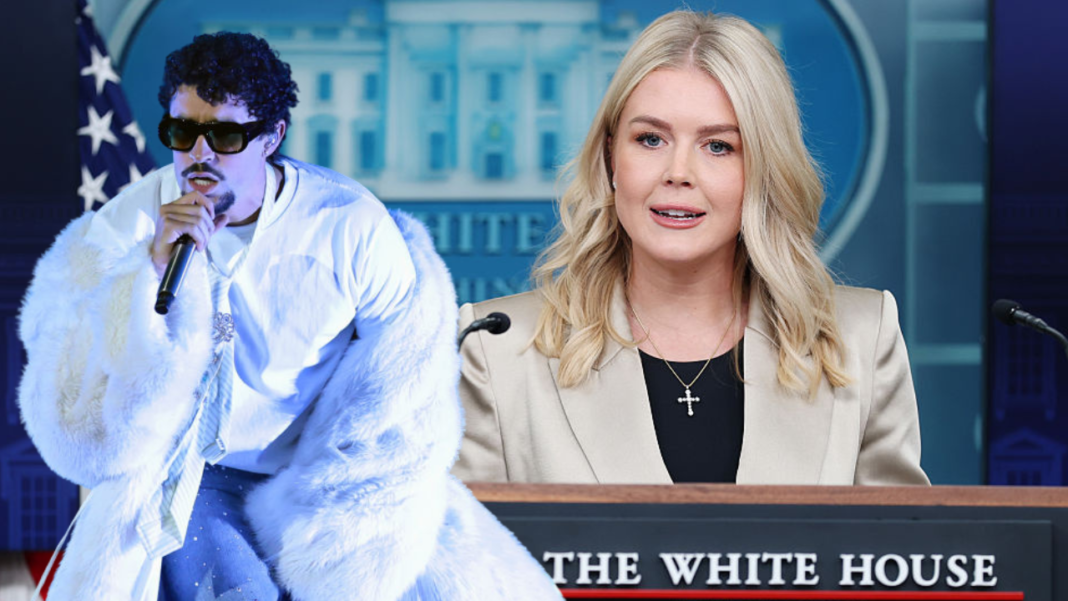The White House Responds to Bad Bunny’s Super Bowl Halftime Show Announcement
In a recent press briefing, the White House officially reacted to the announcement that Latin global superstar Bad Bunny will perform at the 2026 Super Bowl halftime show. This news has sparked conversations and debates far beyond the realm of sports and entertainment, highlighting the intersection of music, culture, and politics.
Press Secretary’s Remarks
When questioned about Bad Bunny’s selection, White House Press Secretary Karoline Leavitt deftly avoided revealing President Donald Trump’s personal views. “I know there are many in this room who are very anxious to hear the president’s response to Bad Bunny being the halftime show performer,” she noted, carefully deflecting any further inquiries. While her reluctance to disclose the president’s feelings may have intrigued reporters, she encouraged them to ask him directly during future opportunities.
Leavitt admitted to having her own thoughts on the matter but emphasized that her role was not to discuss personal opinions. This careful positioning hints at the complexities surrounding Bad Bunny’s involvement, not only as a performer but also as a figure in political discourse.
Ice and Immigration Policies
One of the most controversial aspects discussed during the briefing revolved around the possible presence of Immigration and Customs Enforcement (ICE) agents outside Levi’s Stadium in California during the event. This concern stems from comments made by Corey Lewandowski, a former Trump Homeland Security advisor, who implied a heightened enforcement presence at the Super Bowl.
In stark terms, Lewandowski described ICE’s commitment to immigration enforcement, stating, “There is nowhere that you can provide safe haven to people in this country illegally. Not the Super Bowl and nowhere else.” His remarks reveal a significant tension between the administration’s immigration policies and the cultural impact of Bad Bunny as a performer.
Bad Bunny’s Political Stance
Bad Bunny, whose real name is Benito Antonio Martínez Ocasio, is not a stranger to political statements. He has been vocal against immigration policies under the Trump administration, particularly regarding the treatment of undocumented immigrants. Earlier this year, he famously expressed his frustration with ICE agents by referencing them as “sons of b—–s” in Spanish.
His decision to exclude the United States from his world tour was partly influenced by fears of ICE enforcing immigration policies at his shows. These actions further complicate the narrative around his upcoming performance, framing it as not just an entertainment choice but a bold political statement that resonates with many in the Latin community.
Conservative Criticism
The decision to feature Bad Bunny has drawn sharp criticism from various conservative commentators. Lewandowski expressed his discontent, calling the choice “shameful,” particularly given the artist’s outspoken views against the U.S. immigration system. This criticism highlights a broader cultural clash, as some view Bad Bunny not just as a performer, but as a political figure, raising questions about American identity and representation in mainstream events like the Super Bowl.
Despite the backlash, the White House has stated that there is currently no “tangible plan” to station ICE agents at the Super Bowl. However, Leavitt was clear that the administration will maintain its standard procedures in dealing with illegal immigration, framing it as an ongoing commitment to enforcing laws.
Conclusion
As the news surrounding Bad Bunny’s upcoming performance unfolds, it will undoubtedly ignite further debate about the role of music and celebrity in politics. The reactions from both the White House and the public highlight a situation that extends far beyond football, touching on national identity, cultural representation, and the complex interplay between art and activism. As the 2026 Super Bowl approaches, all eyes will be on Bad Bunny—not just for his electrifying performance, but for the conversations that will continue to shape the socio-political landscape.



